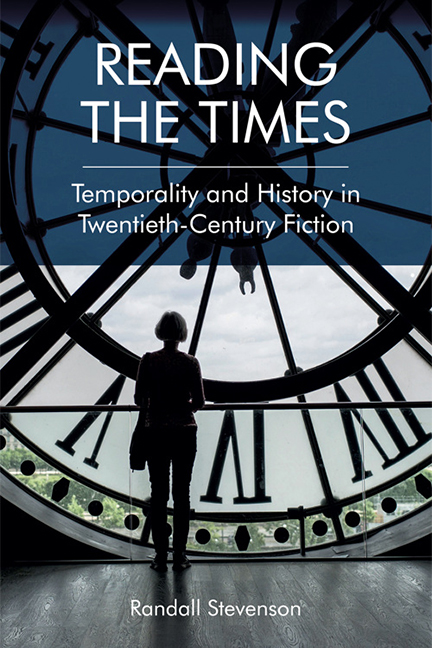Book contents
- Frontmatter
- Contents
- List of Illustrations
- Preface
- 1 Introduction: Picnic Time, Prime Time, Story Time
- 2 ‘All Those Figures’: Joseph Conrad and the Maritimes
- 3 ‘Wheels within Wheels’: D. H. Lawrence, Industrial Time and War Time
- 4 Times in the Mind: Modernism in the 1920s
- 5 Not Like Old Times: The 1930s to Mid-Century
- 6 ‘Time is Over’: Postmodern Times
- 7 Conclusion: Millennial Times, Perennial Times
- Bibliography
- Index
7 - Conclusion: Millennial Times, Perennial Times
Published online by Cambridge University Press: 10 November 2020
- Frontmatter
- Contents
- List of Illustrations
- Preface
- 1 Introduction: Picnic Time, Prime Time, Story Time
- 2 ‘All Those Figures’: Joseph Conrad and the Maritimes
- 3 ‘Wheels within Wheels’: D. H. Lawrence, Industrial Time and War Time
- 4 Times in the Mind: Modernism in the 1920s
- 5 Not Like Old Times: The 1930s to Mid-Century
- 6 ‘Time is Over’: Postmodern Times
- 7 Conclusion: Millennial Times, Perennial Times
- Bibliography
- Index
Summary
Not all the events surrounding the millennium were as celebratory as France's incroyable pique-nique. In one instance at least, they were thoroughly alarming. As the millennium approached, computer engineers predicted widespread problems when systems based on dates beginning in ‘19’ had to move on to ‘2000’. This potential ‘millennium bug’ threatened a disastrous global zero hour, as the century turned, disrupting or arresting air traffic, telecommunications, banking, power supplies, the internet, satellites and military systems – any or all of the innumerable agencies dependent on computerised clocks and controls. As it turned out, amended programming eliminated problems almost entirely, suggesting the risks might have been overestimated. Concerns about the bug nevertheless highlighted how comprehensively the world and its technologies had come to depend on mechanical and electronic systems of enumerating time. Global communications, computers and the internet had begun to offer some freedom from the clock, Chapter 6 suggested, but the systems and technologies involved remained thoroughly – even dangerously – in its thrall.
Concerns about the bug contributed to wider apprehensions sometimes shadowing the last hours of 1999. ‘Every New Year's Eve is impending apocalypse in miniature’, Zadie Smith suggests in her end-of-the-century novel White Teeth (2000): the eve of a new millennium naturally occasioned particularly profound concerns about epochal change and an uncertain future. Commentators often used W. B. Yeats's views of twenty centuries of the Christian era, in ‘The Second Coming’ (1921) – and of a contrary epoch which might succeed it – when looking nervously behind and ahead. ‘Mere anarchy’, increasingly evident in the twentieth century, seemed to add conviction to Yeats's apocalyptic vision of a worse period to follow, inaugurated not by some computer bug, but more grandiosely – when some ‘rough beast, its hour come round at last,/Slouches towards Bethlehem to be born’.
Anyone dreading a Yeatsian apocalypse nevertheless shared with computer programmers – and millions of revellers content simply to celebrate the millennium – a clear conviction that the stroke of midnight on 31 December 1999 constituted a defining moment in the world's experience. Commentators invoking Yeats seldom paused to wonder if ‘mere anarchy’ might not offer apocalyptic beasts a good excuse for turning up late, or early, or for not knowing the difference, or the correct place to appear.
- Type
- Chapter
- Information
- Reading the TimesTemporality and History in Twentieth-Century Fiction, pp. 220 - 238Publisher: Edinburgh University PressPrint publication year: 2017



